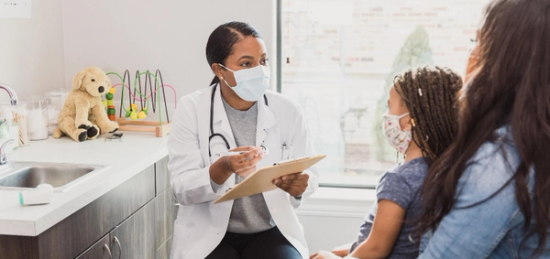Getting diagnosed with a food allergy is life-altering. It requires so much from individuals and families who have to learn how to completely avoid the offending food. In some cases, families leave appointments with their doctor more confused and afraid than when they came in. It’s essential for all medical professionals to understand some basics about food allergies in order to help ensure that affected individuals and families get the support they need. Here are five things that all medical pros should know about food allergies:
- Accurate diagnosis starts with a history of reaction. Blood or skin tests do not diagnose food allergy alone and should not be conducted on foods that have not been eaten or have not been documented as causing a food allergy reaction. Sensitization does not equate to food allergy in the absence of clinical symptoms. Panel tests should not be used [1].
- Food allergies cause significant economic, social and psychological burdens to families [2]. Therefore, accurate diagnosis is extremely important. Families managing food allergies spend significantly more on food and healthcare, suffer greater loss of income and struggle with anxiety more than those with other types of chronic health conditions. Many managing food allergies self-isolate and avoid social situations, like dining out and sleepovers, that are normal parts of the lives of non-allergic families. Some choose to homeschool, and one parent may even leave their job to provide care for an allergic child.
- Families need accurate information and resources to help them manage food allergies. A food allergy diagnosis is scary and just telling them to avoid a food is not enough. Overemphasizing the risk of death due to anaphylaxis is not helpful and may worsen quality of life. If healthcare providers don't give them good information, including addressing common myths, families will go to Dr. Internet Search (and probably find lots of misinformation) [3]. Consider referrals to a food allergy registered dietitian and psychologist/family therapist to help them manage the practical and psychological aspects of food allergies. If not available in your area, these services may be available using telehealth services. FoodAllergy.org and FoodAllergyAwareness.org are two good places to send families who are just getting started.
- There are no cures for food allergies. Even though there is an approved oral immunotherapy treatment for peanut allergies, it is not a cure and immunotherapy for other allergens is not yet FDA approved. Unless a child outgrows an allergy, having a food allergy usually means life-long avoidance.
- It is possible for those with food allergies to live vibrant and full lives! Even with the truths above, individuals with food allergies can travel, dine out, go to school, go to work and enjoy social situations safely when they use caution and preparedness as foundations.
Parents, young people and adults managing food allergies should have the skills they need to safely navigate food situations safely and treat reactions when they happen. Parents should involve children in their own care as early as possible, seek to teach children to self-advocate and transfer management in age-appropriate ways as children mature. Schools do not need to ban food allergens to keep students safe, but they should have comprehensive plans for all students with food allergies. While it is not possible to eliminate all risks that come with having a food allergy, it is possible to reduce risk and prepare for accidental ingestion. Health professionals, including nurses, pediatricians, family physicians, PCPs, registered dietitian nutritionists and all others, can play a part in helping ensure that those with food allergies have the support and tools they need to thrive.
References
[1] Choosing Wisely Website. Available at https://www.choosingwisely.org/societies/american-academy-of-allergy-asthma-immunology/. Accessed May 3, 2021
[2] Warren, C, et al. Epidemiology and Burden of Food Allergies. Current Allergy Asthma Reports. 2020;20(6):6
[3] Stukus, D. How Dr. Google Is Impacting Parental Medical Decision Making. In: Pediatric Allergy, An Issue of Immunology and Allergy Clinics E-book.
